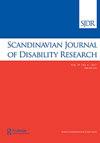使用基于时间序列的智能床非平稳模型协助医疗保健
IF 1.3
Q2 REHABILITATION
引用次数: 0
摘要
在任何医疗情况下,首要的要求是监测心率、血压和氧含量等生理因素。夫妻关系的任何破裂都与衰老或疾病有关。这些生理信号是非平稳的,本文分析了生理信号的非平稳多维时间序列的传递函数。在这项工作中,提出了一种将生理建模和功能元素集成到患者智能床中的方法。这项工作包括对10名智能床患者进行实验。所提出的想法经过验证和分析,可以自动捕捉由于姿势变化、衰老的影响或医疗紧急情况的任何要求而引起的生理信号的任何变化。接下来,证明了所提出的方法可用于识别与给定时间序列数据的医疗紧急情况相关的瞬态变化。这些发现显示了所提出的方法在预测复杂的生命体征过程中的价值,在这些过程中,传统的手动自动调节系统可能在健康和病理情况下失效。生理信号时间序列之间的关系是一个重要的研究领域。提出了一个可靠的时变模型来解释生理数据可能的非平稳性,以确定对患者进行紧急护理的可能性。由于该方法是基于时变参数的动态模型,因此可以识别信号之间的变化和关系。这项研究中使用的技术包括读取与患者智能床相连的心率、血压和氧气水平。本文包括暂态分析和参数评估作为这项工作的一部分。本文章由计算机程序翻译,如有差异,请以英文原文为准。
Assisting Healthcare Using a Time-Series-Based Nonstationary Model for Smart Beds
Under any medical circumstance, the first and foremost requirement is to monitor physiological factors such as heart rate, blood pressure and oxygen level. Any breakdown in their coupling has been linked to ageing or illness. These physiological signals are nonstationary, and this paper analyses the transfer functions of nonstationary multidimensional time series of physiological signals. In this work, a method that integrates physiological modelling and functional elements into the smart bed for patients is proposed. This work includes experimentation on 10 smart bed patients. The proposed idea is validated and analysed to automatically capture any changes in the physiological signals due to postural changes, any impact of ageing or any requirement of a medical emergency. Next, it is demonstrated that the proposed method can be used to identify transient changes linked to medical emergencies for the given time-series data. These findings show the value of the proposed method in predicting the complicated vital-sign processes where conventional manual autoregulatory systems may fail in both healthy and pathological situations. The relation between the time series of physiological signals is an essential study field. A reliable time-varying model is presented to account for the possible nonstationarity of physiological data to determine the possibility of emergency care for patients. The suggested approach can identify variations and relations between signals because it is built as a dynamic model based on time-varying parameters. The technique used in this research includes readings of heart rate, blood pressure and oxygen level connected to the patient’s smart bed. The paper includes transient analysis and parametric evaluation as part of this work.
求助全文
通过发布文献求助,成功后即可免费获取论文全文。
去求助
来源期刊

Scandinavian Journal of Disability Research
REHABILITATION-
CiteScore
3.20
自引率
0.00%
发文量
13
审稿时长
16 weeks
 求助内容:
求助内容: 应助结果提醒方式:
应助结果提醒方式:


